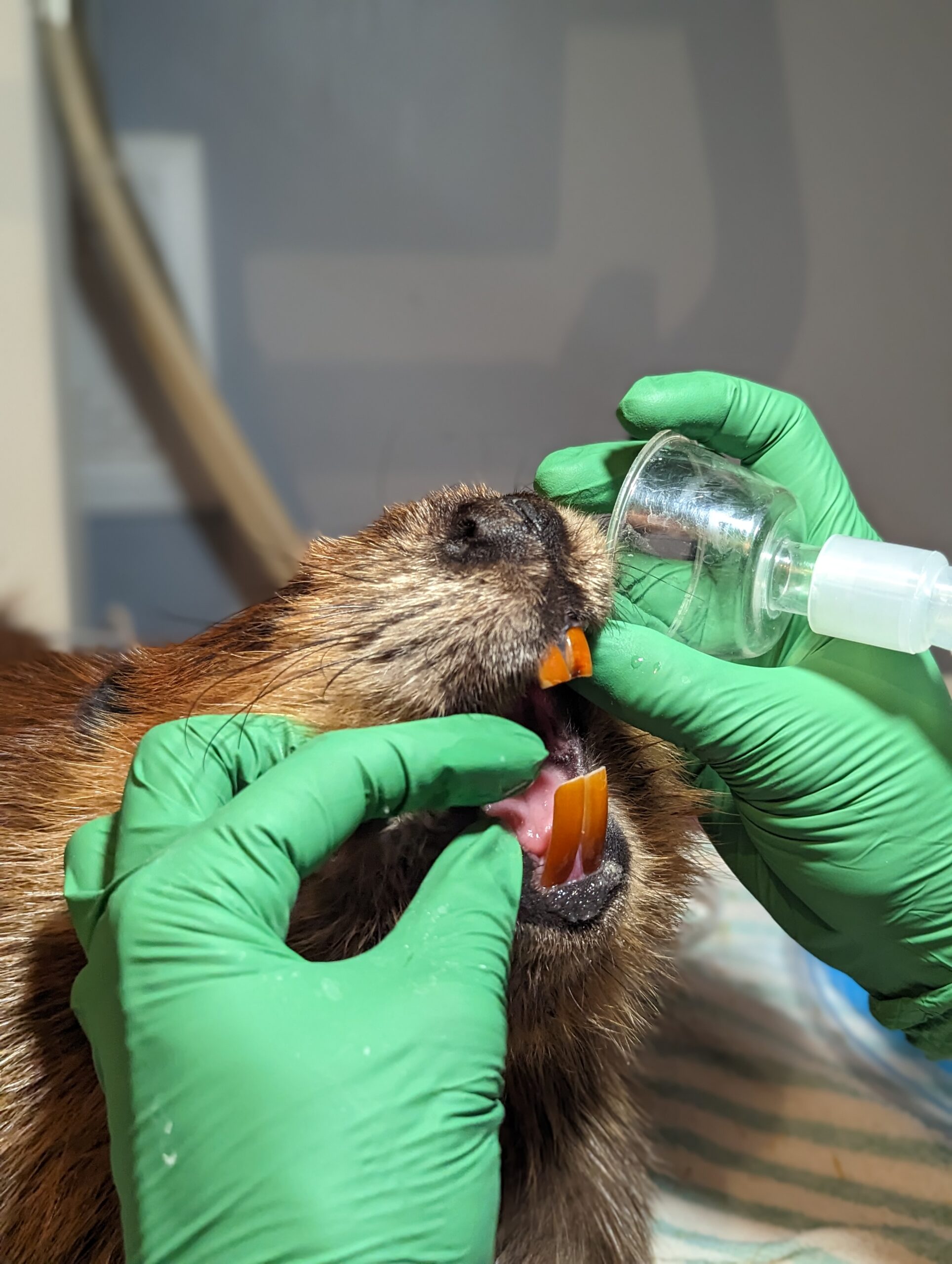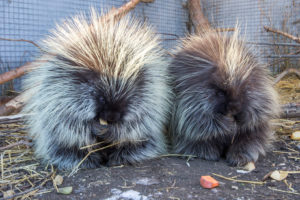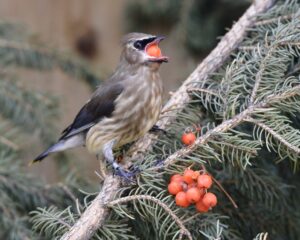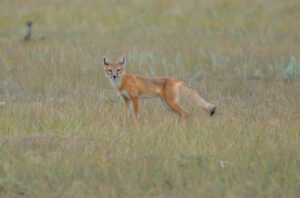by Katie Grant
When you see a rodent, you can almost guarantee they are either gnawing on something or grinding their teeth together. That is because a rodent’s teeth never stop growing! These creatures come in many different shapes and sizes, but all share a unique pair of upper and lower incisors, which are constantly growing from the day they are born.
What is a rodent?
Rodentia is the scientific name for rodent, which comes from the Latin word rodere, which means “to gnaw.”1
There are over 2000 species of rodents alive today, which makes them the largest group of mammals.2 Rodents have lived on the planet for at least 56 million years.3 When we talk about rodents in Alberta, the most common creatures you will recognize are:
- Mice
- Voles
- Squirrels
- Chipmunks
- Hamsters
- Guinea pigs
- Gophers
- Muskrats
- Beavers
- Porcupines
Rodents are scavengers. They mostly feed on plants, seeds, grasses, and fruit, but some rodents also feed on insects and other small animals.
Rodents can be found nearly everywhere in the world. They live in trees and underground, in the mountains and deserts, in houses and office buildings, and some, such as muskrats and beavers, are semi-aquatic.
Rodent Teeth
All rodents have four long, rootless incisors, which have a hard enamel layer on the front, and a softer dentine on the back.4 These incisors never stop growing during the animal’s lifetime and therefore, must be continually worn down and kept sharp; which is why rodents are constantly gnawing. Rodents have no canine teeth; instead, they have a gap called a diastema between the incisors and their cheek teeth (molars).1
If a rodent is unable to gnaw, their teeth can pose a risk to themselves. They would continue to grow, piercing through the jaw.4 The rodent’s jaw articulation ensures that their incisors do not meet while chewing their food. Their masseter muscles work hard to allow the rodent to use its incisors like chisels.1
You’ve probably heard stories about rodents being able to chew through metal pipes. This is because their teeth are harder than lead, aluminum, iron, and copper!5 They gnaw on many different objects in order to keep their teeth short and sharp. When they’re not gnawing on something, they are grinding their teeth against each other, similar to a human sharpening a knife.
The Importance of Rodent Teeth
Being such a diverse group, rodents have an important role in Earth’s ecosystems. When chipmunks eat and disperse seeds, they determine which plants reproduce, and where. When beavers build their dams, they moderate floods and droughts while helping to purify water systems. When gophers dig their tunnels, they create a habitat for many other underground species and provide important benefits for the soil itself. When a vole stores mushrooms, the spores are exposed to the elements which encourages their spread, providing plants with nutrients. Rodents are also an invaluable link in the food chain to predators such as birds of prey, wolves, and foxes. We are far more dependent on rodents than we know.6
Footnotes
- Rodents. March 16, 2023.
https://a-z-animals.com/animals/rodents/ - Klappenbach, Laura. Facts and Characteristics of Rodents. April 5, 2019.
https://www.thoughtco.com/rodents-profile-130698#:~:text=The%20key%20characteristics%20of%20rodents%20include%3A%201%20one,6%20complex%20jaw%20musculature%207%20baculum%20%28penis%20bone%29 - Musser, Guy. Evolution and Classification. Accessed April 12, 2023.
https://www.britannica.com/animal/gerbil - Rodent Teeth. May 21, 2014.
https://affiliateddentists.com/info/rodent-teeth/ - Rodents. Michigan State University Pesticide Education 2001.
https://www.canr.msu.edu/ipm/uploads/files/Community_and_Schools_PDFs/rodentfs.pdf - White, Scott. In Defence of Rodents. January 3, 2023.
https://theconversation.com/in-defence-of-rodents-why-healthy-ecosystems-need-them-196406






